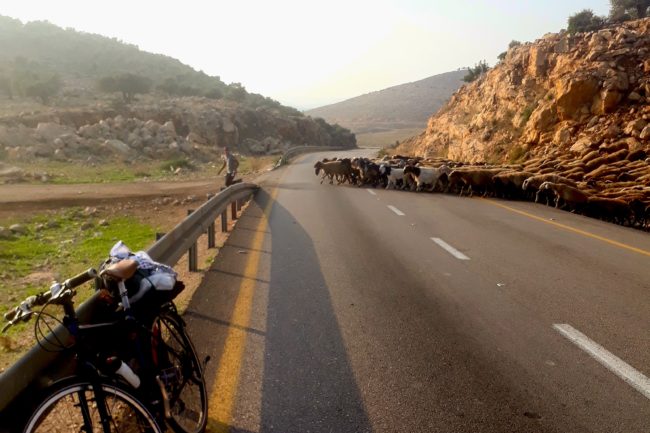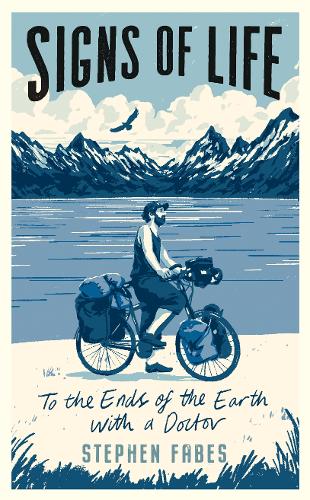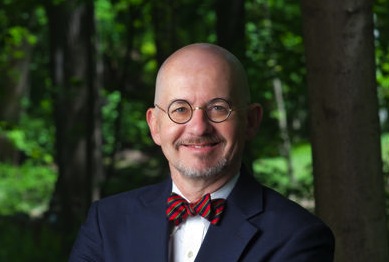One goes to ride across Israel and occupied Palestine in search of “hope, truth and change”. Another sets out to ride all six continents to find “more space, more time, more risk: more adventure”. Julian Sayarer and Stephen Fabes’ new books take very different routes, but the principles are the same; that seeing the world by bicycle offers a slower, meditative, more valuable way of understanding ourselves and our planet. Put more passionately, Sayarer firmly believes bicycles bring out the best in people.
It’s also interesting that both Fifty Miles Wide and Signs Of Life end up becoming intensely political books. Of course, you’d expect that from Sayarer given the context of Fifty Miles Wide, and there is a slight concern initially that his desire to find chance encounters weaving through Israeli blockades, checkpoints and occupied territories is somewhat foolhardy – maybe even self-indulgent. Happily, it soon becomes less a book about his personal adventure and more about the land and people he finds, about perseverance in the darkest of circumstances.
There’s a real poetry and soul to the writing, probably as a result of those hours of contemplation on the bike. A beautiful chapter towards the end of the book sees Sayarer ride out of Hebron with Sadam. “Hills in wan light yawn gently at the concrete garrisons the Israelis threw down at their backs”. The number of times Sadam has been stopped on these rides means he sprints – out of genuine fear as well as joy.
Sayarer grits his teeth and pedals hard; not to go fast, but so that he remembers, and can write about this sensation of watching a boy riding his bicycle through Palestine; “riding a bicycle until there comes that day when he does not have to do it in secret, with nothing to hide and with no-one to stop him because the Palestinians, in body just as they already are in heart, will be free.”
Stephen Fabes admits in his acknowledgments that “regular philosophising outside café Oto with Julian Sayarer was also critical to the success of this book, and my own sanity.” Which is not to say Signs Of Life shares too much with Fifty Miles Wide. For starters, Sayarer is an experienced writer, while Fabes was (and is again) a doctor who packed his stuff on to a bicycle and spent the next six years pedalling across six continents. You get the sense that Sayerer helped him tease out what Fabes’ varied experiences actually meant, which makes for a deeper, more satisfying travelogue.
He talks of the wild landscapes and the tremendous complexity of the world he cycles through in the same awe with which he’d encountered the human body as a medical student. That complexity is sometimes overwhelming; the sheer scale of his quest – London to Cape Town; Ushuaia to Deadhorse; Melbourne to Mumbai; Hong Kong to Calais – means occasionally there’s a lack of detail, a wish that he’d lingered longer in an interesting place as he contemplates healthcare, or bike riding, or generally, just people.
Particularly because when Fabes does, it’s incredibly moving. He climbs into the Tanonthongchai mountains towards the border town of Mae Sot in Thailand/Myanmar to help with refugees dying with malaria in a field hospital.
“On death certificates, doctors are asked to state the ‘underlying cause of death’, and you might include the biological background to a person’s demise; a heart condition or an infection, for example,” he writes. “You do not mention poverty, a rickety healthcare system or military rule, though it occurred to me that these were modes of death too.”
Stephen Fabes, Signs of Life
Fabes returns to the UK in 2016, the year of Brexit referendum and Trump. “Cycling around the world had brought our commonalities into focus like nothing else could and yet now, at home of all places, there was talk – or insinuations, at least – of deep-rooted differences between human beings,” he remembers. His counter argument is well-rehearsed; if we pay more attention to all that we have in common – while celebrating the “fine anatomy” of the world – we might have a brighter future.
But there’s something about seeing everyday life from the saddle of a bicycle which does give him the right to be so utopian. As Fabes says, “cycling around the world was, for me, an object lesson in the importance of accepting intricacy, and of holding our biases lightly.”
Or as Sayerer might put it, cycling allows you to “see better.”
Fifty Miles Wide by Julian Sayarer (Arcadia)
Signs of Life by Stephen Fabes (Pursuit)
Shorter versions of these reviews appeared in The Observer earlier this year.




